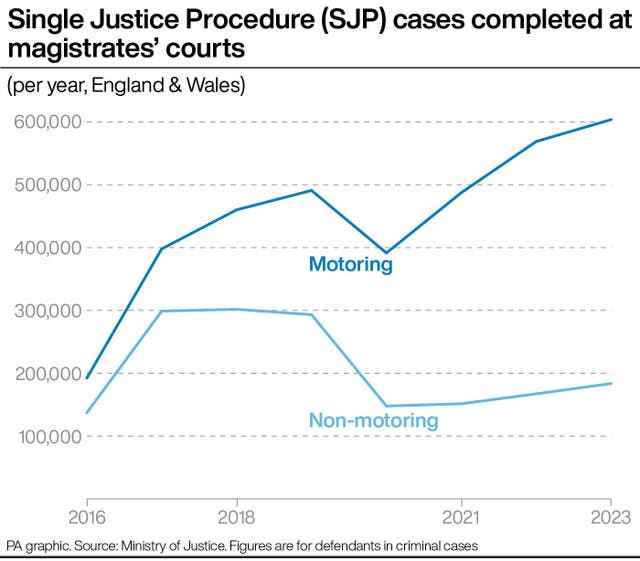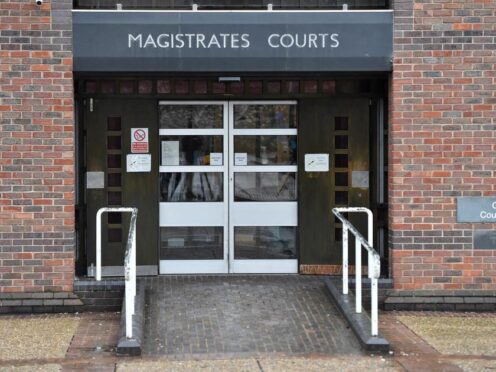The number of crimes being prosecuted behind closed doors in England and Wales has risen to its highest level on record since the measures were introduced.
Last year, 787,403 criminal cases were dealt with by magistrates’ courts under the single justice procedure (SJP).
The latest Ministry of Justice (MoJ) figures show this exceeds a previous peak of 784,325 recorded in 2019, signalling how the volume of cases being considered through the secretive process has now returned to levels similar to those seen prior to the coronavirus pandemic.
The figures comes after Justice Secretary Alex Chalk suggested the system needs reform amid concerns from magistrates.
SJP allows magistrates to handle some offences which would not result in jail time – like using a television without a licence, dodging train fares, driving without car insurance, speeding and truancy – in private rather than in open court. Although defendants can choose to attend their hearing in person.
The number of cases handled under SJP since it came into force in April 2015 has grown gradually over the years, but fell amid lockdowns imposed during the pandemic.
In the year of its launch, 12,031 cases were dealt in this manner, according to the data published on Thursday. This was followed by 329,406 in 2016, 696,935 in 2017, 761,995 in 2018, before the 2019 peak.
The figures dipped in 2020 when 539,549, were dealt with, but then continued to rise again, with 639,104 handled in 2021 and 736,110 in 2022.
Of the total number of cases dealt with last year, 77% were classed as motoring, while the proportion recorded as non-motoring was 23%, PA news agency analysis of the data shows.

Cases completed at magistrates’ courts in the last three months of 2023 took an average of 182 days to be dealt with, or around six months.
This is down from 213 days for the final three months of 2020, when courts were facing a backlog of cases due to the Covid-19 pandemic, but is still higher than the average for the last quarter of 2019, prior to the pandemic (170 days).
In a significant intervention earlier this week, the Magistrates’ Association which represents those tasked with considering such cases said SJP “needs reform” as it raised concerns cases were being brought before the court without prosecutors, such as those representing the DVLA or TV Licensing bodies, considering mitigating circumstances of defendants, particularly those who are elderly or vulnerable.

The warning prompted Mr Chalk to make clear in the Commons that “fairness is non-negotiable” for the SJP before telling MPs he believes there is an “issue about transparency”.
The system “works well” but there is a need to consider “whether it ought to be refined”, he said.
An investigation by the Evening Standard last month found a pensioner with Alzheimer’s was prosecuted over £3.34 owed to the DVLA under the SJP.
A domestic abuse victim was also found to have been fined under the SJP after her controlling ex-boyfriend did not insure the car, and a pensioner who was sick was prosecuted for failing to pay a TV licence while caring for his ill wife.
The Society of Editors has backed calls from the Magistrates’ Association for accredited journalists to be allowed to observe SJP sittings, arguing this was “vital” if “public confidence is to be restored in the system”.
